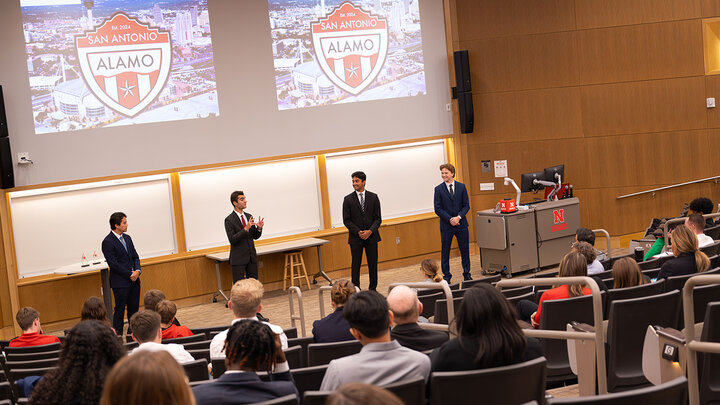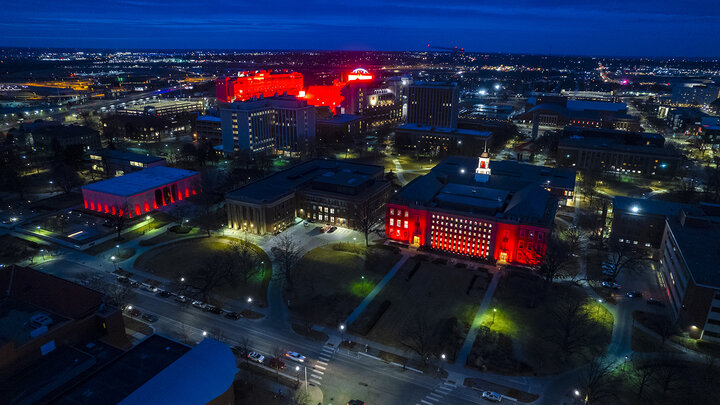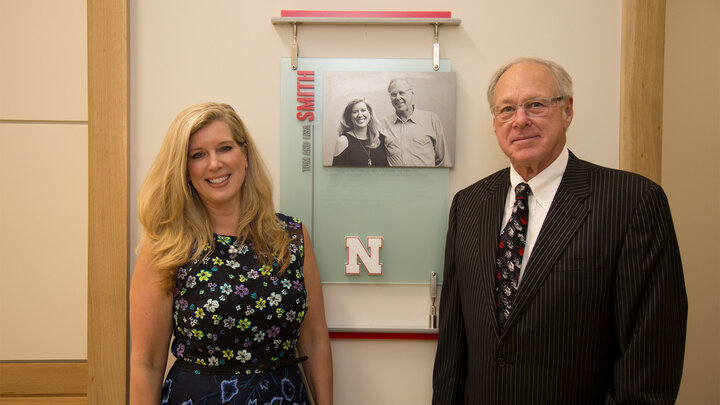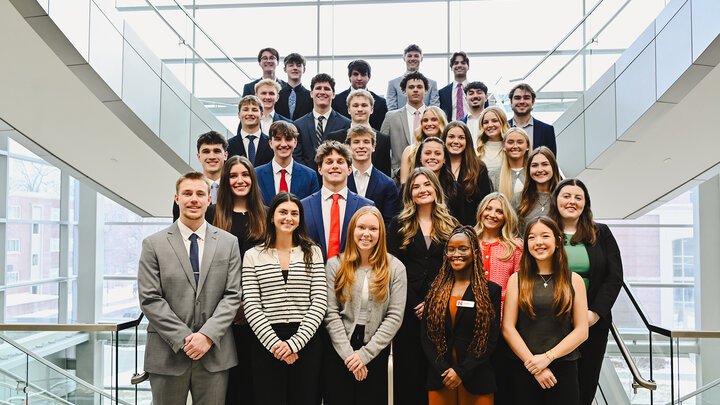Ten undergraduate teams from universities across the nation competed at the inaugural Cornhusker Business Case Competition held at the University of Nebraska–Lincoln College of Business in October. Sponsored by Hudl, the competition prioritized adaptability and innovative thinking by challenging teams to craft well-reasoned proposals for diverse stakeholders. Winning teams hailed from the University of Texas-Austin and the University of Cincinnati.
Standing out from the many case competitions hosted by universities each year, the Cornhusker Business Case Competition was created and coordinated by a team of four dedicated Nebraska Business Honors Academy students. Competing in previous competitions impacted their planning approach, and they sought to maximize the competition experience.
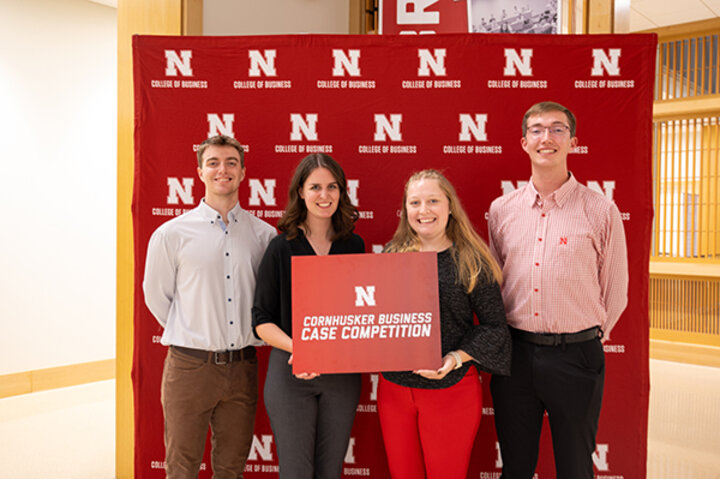
“When we went to a case competition in Tacoma, Washington, we came up with the idea to host a competition of our own here at Nebraska. Our advisors Erin Burnette (director of the Nebraska Business Honors Academy) and Rebekah Neary-DeLaPorte (assistant director) were very supportive and said we should write a proposal. We wrote one up that night at the hotel, and they've helped us figure out our budget, connect with Dean Kathy Farrell to get sponsorships and work with different campuses to recruit teams,” said Lexi Jeffryes, business and law and economics major from Columbus, Nebraska.
The students divided up duties into four positions on their planning committee. Jeffryes and Drake Vorderstrasse, a senior finance major from Hastings, Nebraska, focused more on the event coordination while Nick Lauver and Victoria Diersen tackled creating the case and coordinating judges. Early on in their brainstorming, the students knew they wanted to center the case around sports.
“We decided that since Nebraska is so known for its college athletics we thought it'd be really fun to focus on sports. Then we specifically picked soccer because it's still expanding and adding new teams every couple of years. It's relevant to the sports industry today and offers a great opportunity for students to explore business-wise,” said Diersen, a senior economics major from Brookings, South Dakota.
Lauver took the lead in writing the case with the goal of motivating and challenging teams. Scott Fuess, Jr., University of Nebraska Faculty Athletics Representative, Steinhart Foundation Distinguished Professor of Business, Research Fellow Institute for the Study of Labor (IZA) Bonn, Germany and Professor of Economics, and Andrew Hanna, Seacrest Teaching Fellow and assistant professor of practice in management and entrepreneurship, helped guide him and narrowed his focus.
“What I love about case competitions is digging into problems, and, of course, I like winning money. With this case, I wanted to surprise teams and prove that Nebraska is the real deal at the College of Business,” said Lauver, a senior actuarial science major from Papillion, Nebraska. “I wanted to make sure everything was set up well. For example, a good case introduction gets people instantly thinking about ideas for how they could solve the problem and things to research. It’s cool to lead people to think more.”
Diersen sought to recruit judges who have relevant experience to the case and found professionals eager to engage with students at the competition.
“It was important to me to have a wide variety of people as judges. We had strategic management professors, leaders at Hudl, CEOs and founders of startups in Nebraska like SheMate, and the vice president of the Storm Chasers, the minor league baseball team in Omaha. They brought great perspectives and gave relevant feedback to students,” she said.
After competing in other competitions, Diersen and others on the planning committee knew how it felt to invest hours of time into one presentation to get minimal feedback. They decided to guarantee teams they would be able to present twice, with the second round coming after a surprise twist to the case.
“The twist gets people thinking about how they make their recommendation adaptable. They had to design their proposal to be able to be changed as you go, which happens in real life when you’re presenting any sort of proposal,” Lauver said.
The committee benefited from college-level, faculty, staff and student support. Other students in the academy volunteered to help, serving as room managers during the presentations and as floaters to make sure things ran smoothly otherwise.
“The moment we posted the volunteer form, we had over 25 people saying, 'Hey, I want to come and help.' It speaks to the reliability and maturity of our Honors Academy students because while they don't get to compete in this, they wanted it to succeed and have us provide a great event for all the competitors who came across the country,” said Vorderstrasse.
Diersen, Jeffryes, Lauver and Vorderstrasse will select and train next year’s committee this spring. Next year’s competition will feature a new topic.
“The feedback we’ve received from other institutions has been incredible. They’ve been highly complimentary of the level of rigor and complexity of the case that was written and especially appreciated the opportunity for their teams to present twice rather than just once before breaking to finals. We’ve already had teams ask for the dates for next year,” said Burnette. “It’ll be exciting to see how this event continues into the future as a student-run, written and led competition.”
